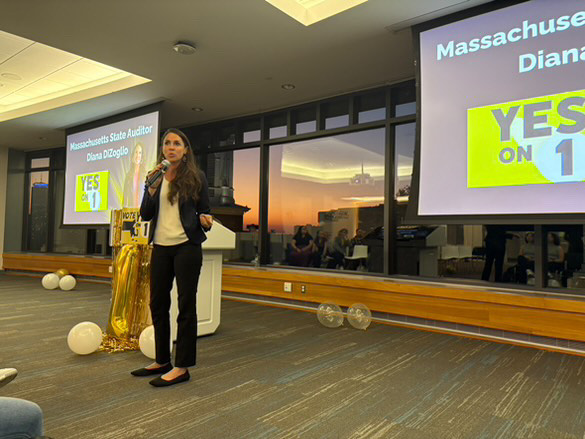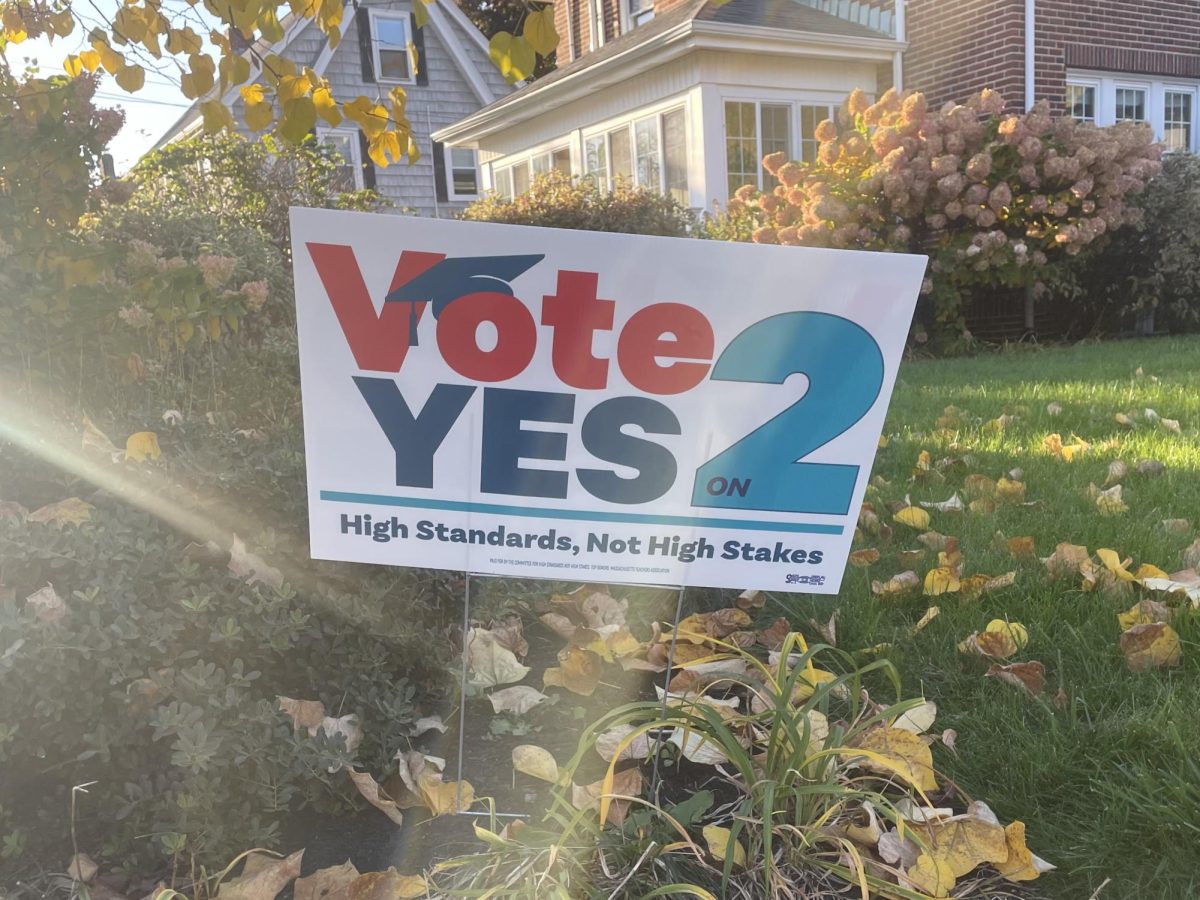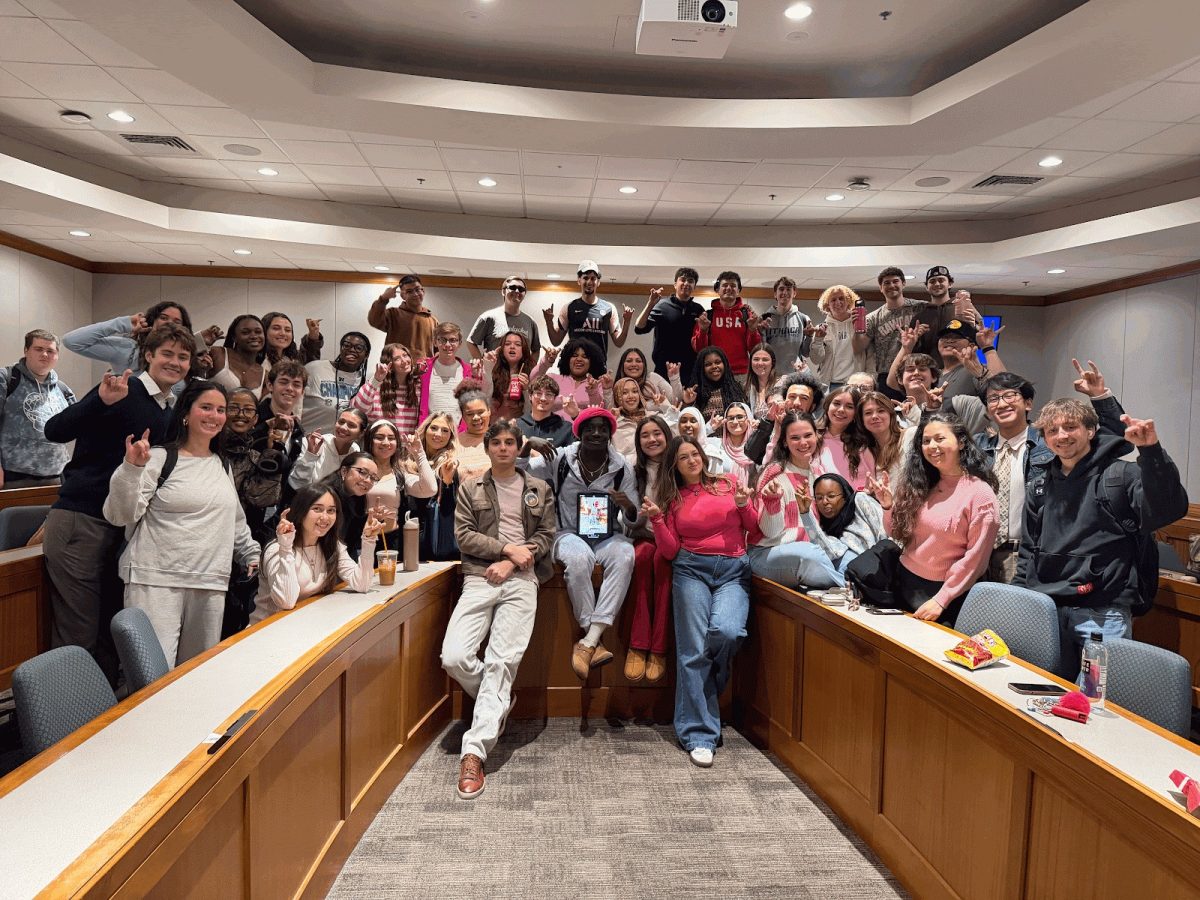
Suffolk University College Democrats hosted Massachusetts state auditor Diana DiZoglio Oct. 22 to speak about ballot Question One. Massachusetts voters will be deciding whether or not to approve Dizoglio and future auditors to perform audits on the state’s House of Representatives and Senate.
Prior to DiZoglio speaking, the Suffolk University College Democrats endorsed a “yes” vote on the measure.
The conference at Suffolk followed DiZoglio’s 141 mile journey, where she was “walking on sunshine.” DiZoglio’s walk across Massachusetts started in the western town of Great Barrington and ended at the Statehouse.
This journey was a mission of meeting with the communities about issues including the behind-closed-doors approach to political processes in Massachusetts. Advocating for transparency is key, as Massachusetts frequently ranks among the least open states in the country, according to Dizoglio.
Joey Pisani, a member of Suffolk Democrats and freshman political science student, joined DiZoglio on much of her journey through Boston, a feat that Dizoglio commended in her address to the student body.
“The toughest time was not when it was raining and pouring, it was when I could see that the Statehouse was just a few miles away, and I was all ache-y, but I still had to walk the rest of the way. Joey was there cheering me on, playing his music, singing songs about sunshine and helping me finish that walk across the state of Massachusetts,” said DiZoglio. “We wouldn’t be able to do what we do without people like you.”
The auditor expressed transparency in her own journey to Beacon Hill as a legislative staffer. Coming from a unique family background, her journey to working for a state representative was not an easy one.
Within her first job post-graduation, she experienced sexual harassment at the hands of her superiors. When presented with a non-disclosure agreement ahead of her being fired from her position, she decided to take a different route: running to become a state representative herself.
“The silencing of a public employee who was sexually harassed was paid for by all of you and all of your families. The powerful politicians in Massachusetts who did not want me to talk about anything I’d seen, witnessed or experienced on Beacon Hill,” said DiZoglio. “A little over a year later, [I] walked back into that same chamber that dismissed me as the youngest woman serving in the House of Representatives at that time.”
This unique journey to her position at the statehouse made her advocacy all the more driven. She made it clear that the money and power within the statehouse should not be working to silence people and should only be used for the betterment of the community. Without the opportunity for people in-state to access these proceedings, there is a clear difference between the Massachusetts legislature and other states’ transparency levels.
“We are the only state in the entire nation where the governor’s office, the judicial branch and the legislative branch all claim exemption from public records laws. They also claim exemption from open meetings laws, that every city and town regardless of where you live in the state of Massachusetts has to abide by,” said DiZoglio.
DiZoglio has taken many measures to ensure that auditing the legislature can happen, but has been blocked at every turn.
She went to the courts with hopes of finding the opportunity there to enforce this, but without cooperation from the people in power in the State House, hit a roadblock. These kinds of consistent roadblocks were the conception of the ballot question. With over 100,000 signatures received to get this question on the ballot, DiZoglio hopes to answer the important question for many Massachusetts voters.
“What are you hiding if you are so scared of an audit?” asked DiZoglio.
DiZoglio made a point to clear up misinterpretations of her job as state auditor, and although she has power to review finances, she also can review other metrics that can be used to improve the experience of citizens.
“It is our job in the auditor’s office to look for areas of improvement and to make recommendations,” said DiZoglio. “We go in, look at process procedures and then we do so with the intention to help make government work better by identifying gaps and proposing potential solutions to those issues we’ve identified.”




















